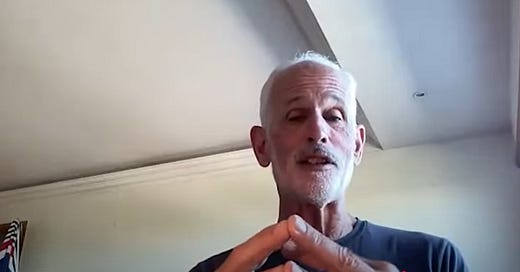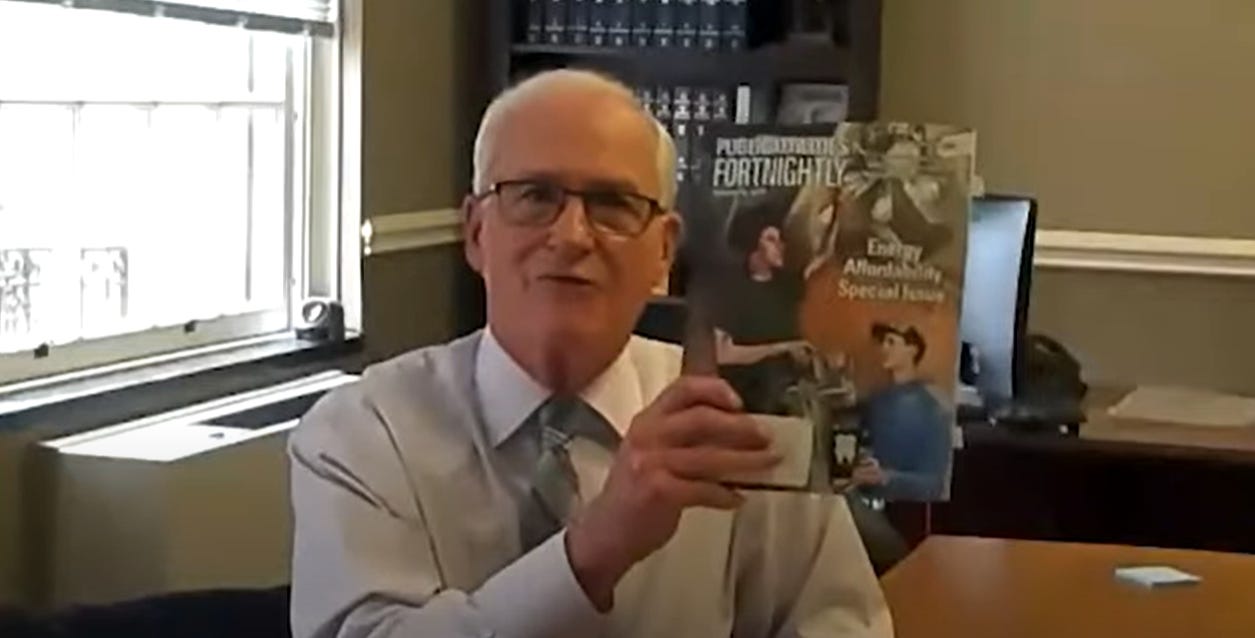NPR's clueless take on the housing crisis | Did teachers' union cheat in anti-MCAS campaign? | Ideology or realism driving Mass. climate policy? | Quick hits |
News tips? Story ideas? Email us at sbvanvoorhis@hotmail.com
To ban or not to ban? A trio of top experts at Contrarian Boston’s recent energy crisis forum debated the future of the fuel that is now at the top of the hit lists for environmental activists, natural gas
Ok, maybe it’s a little much to say that the Bay State’s much-hyped transition to a glorious clean energy future of off-shore wind farms and a heat pump in every home has gone off the rails.
But there are growing questions about whether the climate policy road Massachusetts is barreling down will lead not to a clean energy nirvana, but rather an angry public backlash over soaring electric bills that ends up scuttling the transition altogether.
And it’s also fair to ask how much of the Bay State’s approach to the energy transition is hemmed in by a form of ideological fervor that would rather see utility bills soar - and even carbon emissions rise - than consider building a new gas pipeline.
That’s the uptake from Contrarian Boston’s recent Zoom forum on the Bay State’s energy crisis, in which we hashed out these and other issues with state Sen. Michael Barrett, Senate chair of the Legislature’s energy committee; Michael Monahan, IBEW vice president; and Paul Levy, former head of the Massachusetts Department of Public Utilities.
One of the biggest flashpoints in the discussion: Whether Massachusetts should get behind efforts to build a new natural gas pipeline, such as the $1 billion Constitution proposal, which would pump gas from Pennsylvania’s fracking shale fields to New England.
A spike in gas bills this winter amid unusually cold weather sparked public outrage, with frequent complaints of bills that rose by hundreds of dollars. The cost to consumers could easily have been in the tens, if not hundreds, of millions of dollars.
Gov. Maura Healey and legislative leaders agreed to scale back some of the charges on customer utility bills for energy transition projects while also requiring utilities to cut rates.
Levy, a former top Bay State utility regulator, argued that a new pipeline could be one way of tamping down on future gas price spikes.
The project could also be financed, spreading the cost over a number of years.
That would reduce the region’s current reliance on liquified natural gas shipments from overseas through the Everett LNG terminal, the most expensive option on the market.
“In my opinion, it’s a better way to go than being reliant on a very uncertain international market,” Levy said.
He also cited an almost “religious fervor” on the part of activists looking to halt any new gas infrastructure and to force businesses and homeowners to stop using gas.
“I believe there does have to be a transition, but it has to be a sensible one over a sensible time period,” Levy added.
A new pipeline could also reduce carbon emissions that surge during peak energy use periods, when New England grid operators would be forced to buy power from dirtier oil and even coal-fired plants, Monahan noted.
“More electricity was coming from oil and coal on Tuesday than from gas,” Monahan said, citing the recent 100-degree day.
A key player in shaping Massachusetts climate policy, Barrett countered that he does not want to put ratepayers on the hook for decades to come for a pipeline project that ultimately would be phased out.
While the Lexington Democrat acknowledged that “we are going to need natural gas for a very long time,” he does not want to expand the state’s current fossil fuel infrastructure.
By contrast, the Everett Marine Terminal, where tankers loaded with LNG dock, could be retired much more easily when it is no longer needed.
“Don’t lock me in where I can’t escape the cost of new gas infrastructure,” Barrett said.
Completely clueless: NPR piece touts Vienna’s government-funded “social housing” as a model for American mayors looking to tackle the housing crisis and cut carbon emissions
No wonder nothing is getting built and prices and rents are soaring in Boston and other blue cities.
That’s because city leaders are looking to huge, government-bankrolled housing projects in Vienna for inspiration on how to curb housing costs and cut emissions, or so NPR claims in this piece.
Heaven help us.
Keep reading with a 7-day free trial
Subscribe to Contrarian Boston to keep reading this post and get 7 days of free access to the full post archives.





